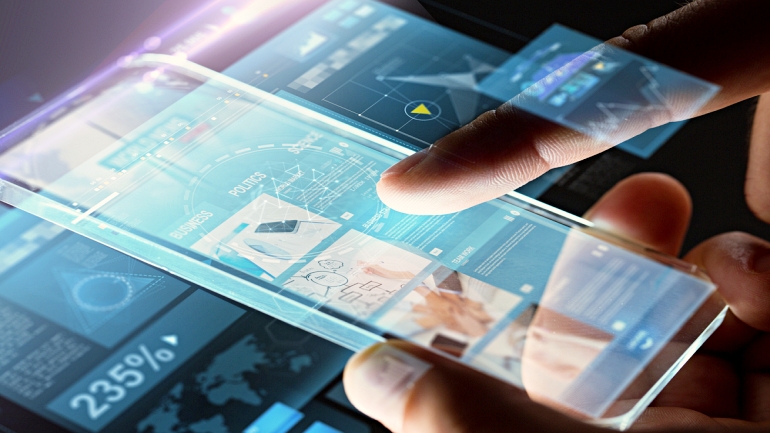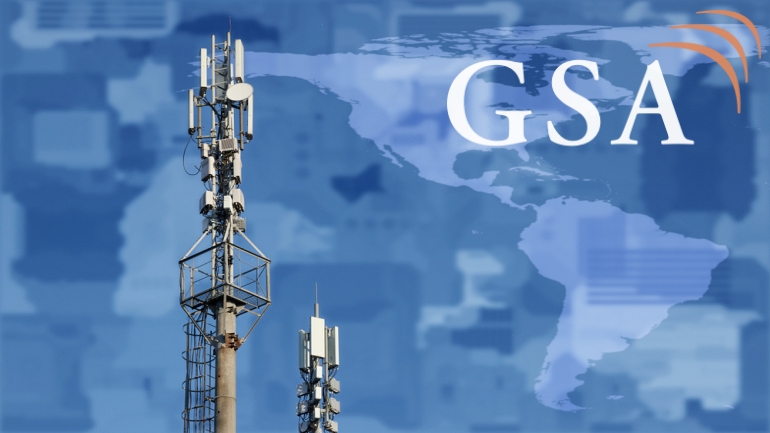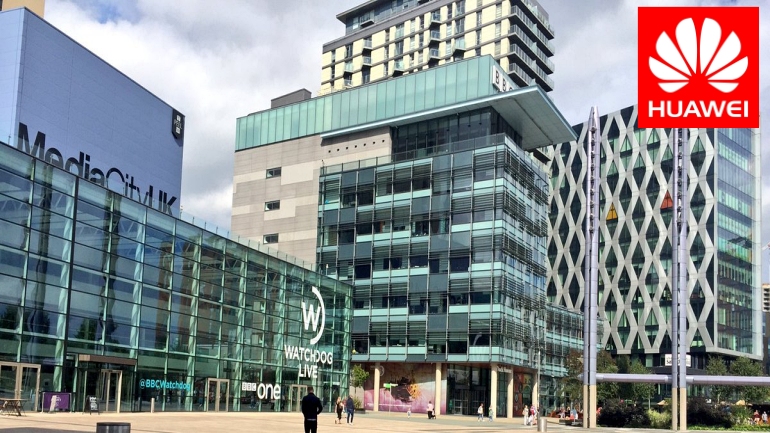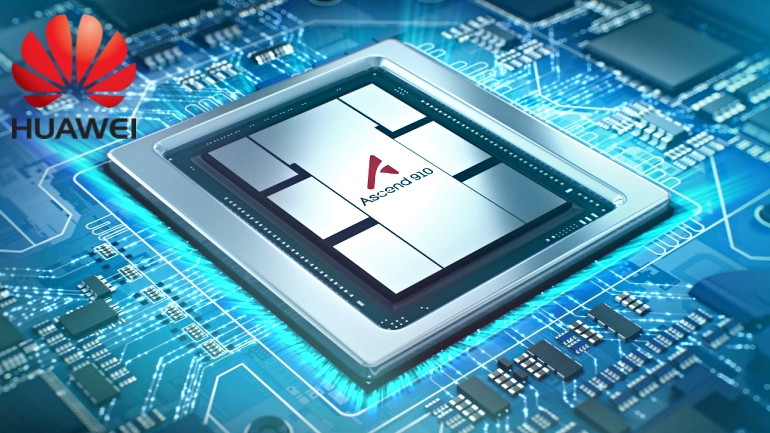Apple unifies its app stores by extending the universal purchase option to Mac apps Apple has added the ability for its app developers to sell their cross-platform apps as one universal purchase, including apps that run on macOS. Consumers will just pay once for an app that works across devices such as iPhone, iPad, Apple TV and/or Mac. Developers can choose to create a new app for these platforms using a single app record in the App Store Connect or add platforms to their existing app record. In preparation for the changes, the App Store categories will be unified across the iOS App Store and Mac App Store, to make the apps more discoverable. Apple said that support for universal purchase will launch in March 2020. Read more at https://tinyurl.com/txqz6al Israeli B2B blockchain startup Clear banks $13m in series A funding Blockchain settlement startup Clear has raised USD 13 million in a Series A round.…
Ribbon launches Next Generation Intelligent Edge portfolio to accelerate enterprise migration to cloud services The US technology company Ribbon Communications has introduced its Next Generation Intelligent Edge portfolio that includes the new EdgeMarc 6000, the latest iteration of Ribbon’s modular platform for voice and data functions. The cloud solutions provider said that its products portfolio securely connects and enhances enterprise voice and data applications, including Microsoft Teams, while delivering service assurance, advanced analytics, security, policy and routing capabilities for cloud communications applications. Ribbon’s Next Generation Intelligent Edge portfolio delivers a comprehensive enterprise edge offering to service providers and enterprises. Read more at https://tinyurl.com/uz95gdj Early 5G smartphone market all about Samsung and Huawei According to the latest Strategy Analytics (SA) report, the demand for 5G smartphones turned out to be much higher than expected and reached 19 million units sold in 2019. Almost three-quarters of such deliveries were made by Huawei and…
British officials recommend role for China’s Huawei in 5G network UK officials have proposed allowing Chinese tech giant Huawei to play a limited role in the UK’s future 5G network, resisting calls from the US for a complete ban over fears of Chinese spying. Huawei will be kept out of the sensitive, data-heavy “core” parts of 5G infrastructure, but will be allowed to deploy its equipment in other parts of the network, according to sources speaking to Reuters. This recommendation comes ahead of a meeting of Britain’s National Security Council next week to decide how to deploy Huawei equipment. In addition, this proposal would satisfy Britain’s two largest telecoms operators, BT and Vodafone, which already use Huawei equipment and are against a total ban. Read more at: https://tinyurl.com/szmovzy CityFibre buys FibreNation from debt-laden TalkTalk for £200 million Britain’s TalkTalk Telecom Group has agreed to sell its FibreNation full-fibre network business…
Six global carriers form a group for MEC, 5G interoperability Verizon, Vodafone, America Movil, KT Corporation, Rogers Communications, and Telstra have joined forces to form the first-of-its-kind cooperation, the 5G Future Forum. The world’s leading telecoms and technology service providers will work together to develop interoperable 5G specifications and mobile edge computing across key geographic regions, including the Americas, Asia-Pacific and Europe. According to the statement from the carriers, they will “develop public and private marketplaces to enhance developer and customer access to 5G, and will share global best practices in technology deployment.” Read more at: https://tinyurl.com/u3vdooh Google acquires no-code app development platform AppSheet Google has announced the acquisition of AppSheet, a no-code enterprise app development platform that allows developers without extensive programming knowledge to collect rich data, fill up apps with AI, or automatically move data. This works by extracting data from a spreadsheet, database or form, and using the…
Telefonica Deutschland picks Nokia and Huawei for 5G network Mobile network provider Telefonica Deutschland has chosen Nokia and Huawei to build its 5G network in Germany. The company, also known under the O2 brand, plans to start building its 5G network in early 2020 and will use equipment from both vendors to power its next generation mobile networks. In a press release, Telefonica Deutschland said it expects to have 5G up and running in Berlin, Hamburg, Munich, Cologne and Frankfurt by the end of 2021. A year later, 30 cities with a population of 16 million would be covered. Read more at: https://tinyurl.com/wczpm54 Xiaomi Redmi K30 launched in China to become the cheapest 5G smartphone Chinese smartphone maker Xiaomi has unveiled its first 5G handset under its budget brand Redmi. The Redmi K30 5G is powered by the latest Qualcomm’s Snapdragon 756G processor and provides integrated SA/NSA dual-mode 5G with the latest 7nm EUV and an integrated low-power consumption solution. Xiaomi…
The latest report by the Global mobile Suppliers Association (GSA) indicates that the 50th commercial 5G network has now been launched, following the activation of 5G services in China. All the three state-backed telecom operators, China Unicom, China Mobile and China Telecom have launched next-gen networks and have already registered more than 9 million 5G subscribers. The GSA 5G Market Snapshot marks this deployment as the 50th commercial roll out of a 5G network. Joe Barrett, the President of the GSA, said, “I think that we have all been surprised by how quickly 5G has taken off, with deployments and commitments from across the globe gathering pace. This latest milestone, combined with commercial launches in the world’s largest mobile market, is set to lead to an explosion in 5G users and also have a knock-on impact on driving both use cases and innovation.” By the end of October 2019, the…
China’s leading technology group Huawei has unveiled its new office based at Salford’s MediaCityUK complex in Greater Manchester. This is the company’s first major facility in the North West of England, as Huawei is set to expand its 5G operations and boost the local tech economy in the region. The new office will run several key business operations including the Network Design Centre, Delivery Operations Centre for the north of the UK, and customer account teams. According to Huawei, the MediaCityUK complex has earned a reputation as an international center for technology, innovation and creativity. Greater Manchester is also home to one of the fastest growing digital technology sectors in Europe, the company said in a press release. Huawei will initially base more than 50 employees at the new office, with the aim of doubling this by 2022. Victor Zhang, Huawei Group President of Government Affairs, said, “This…
Microsoft surprises with new foldable Surface Duo phone running Android Microsoft has unveiled a new dual-screen Android smartphone, the Surface Duo. The folding phone features two 5.6-inch displays that can rotate 360 degrees, which allows it to be fully unfolded as a miniature 8.3-inch tablet. The Surface Duo can run two different apps at the same time, and one of the displays can be used as a game controller or keyboard. Microsoft has incorporated elements of Windows 10X, a new operating system meant for hybrid devices. The company said that the Surface Duo will launch in late 2020, in time for the holiday season. Read more at: https://tinyurl.com/y66mjttm Telefonica Deutschland deploys Infinera DRX for 5G network modernisation Telefonica Deutschland has chosen the Infinera DRX Series to upgrade its national mobile transport network. The Infinera DRX Series is a portfolio of disaggregated routers that combines a carrier-class white box portfolio with Infinera…
LG Uplus launches preliminary 5G roaming services in China South Korean mobile carrier LG UPlus is rolling out its 5G roaming service in China in partnership with China Unicom, a state-run telecom operator. According to the statement, LG Uplus teamed up with China Unicom for the 5G roaming service in April and tested out own services in China from June. The preliminary service was launched after the two companies completed linking their networks on August 16. LG Uplus said its 5G roaming service is currently available only on the LG V50 ThinQ smartphone, but soon it will be expanded to Samsung Galaxy S10 and Note 10 users with software upgrades. Read more at: https://tinyurl.com/yyyhqm3v Oracle strikes deal to provide cloud support for VMware workloads Oracle and VMware have announced a deal resolving their bitter dispute over how Oracle provides technical support for VMware users. The deal will make it easier…
The Chinese telecommunications giant Huawei has unveiled their brand-new Artificial Intelligence (AI) chipset Ascend 910 at its Shenzhen headquarters, together with the accompanying AI computing framework, MindSpore. The company claims this chip to be the world’s fastest AI processor ever with the greatest computing power available on a single chip, and optimized for AI applications. “We have been making steady progress since we announced our AI strategy in October last year,” said Eric Xu, Huawei’s Rotating Chairman. “Everything is moving forward according to plan, from R&D to product launch. We promised a full-stack, all-scenario AI portfolio. And today we delivered, with the release of Ascend 910 and MindSpore. This also marks a new stage in Huawei’s AI strategy.” Huawei originally announced the processor’s planned specifications last year at its Huawei Connect flagship event in Shanghai. After a year of intense development, test results reveal that the Ascend 910…













